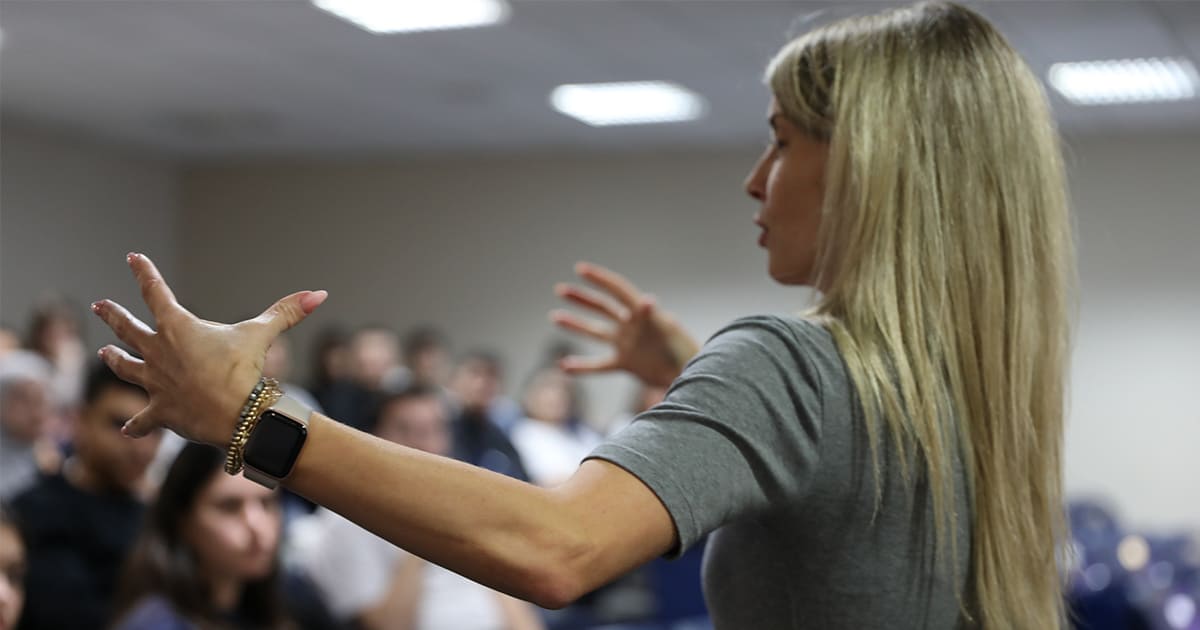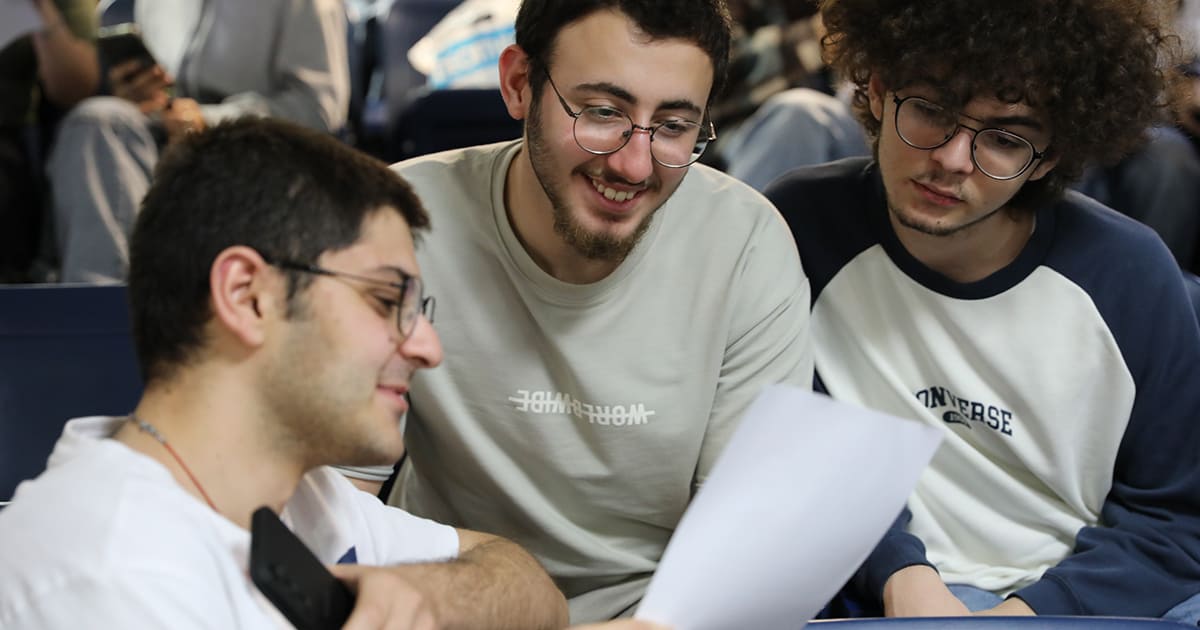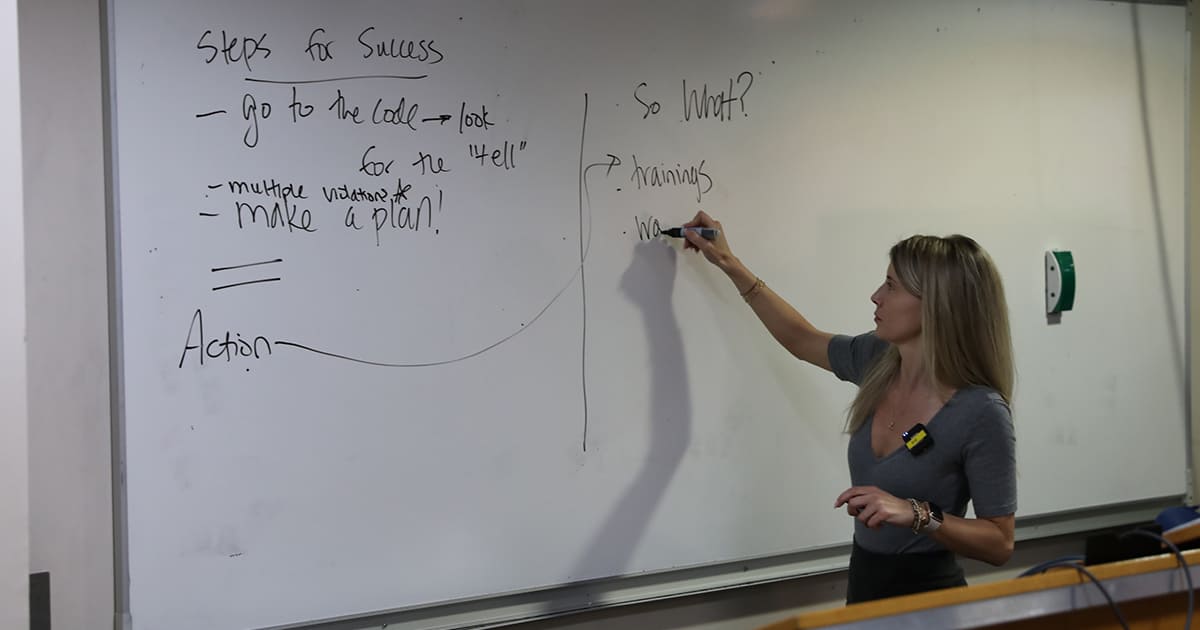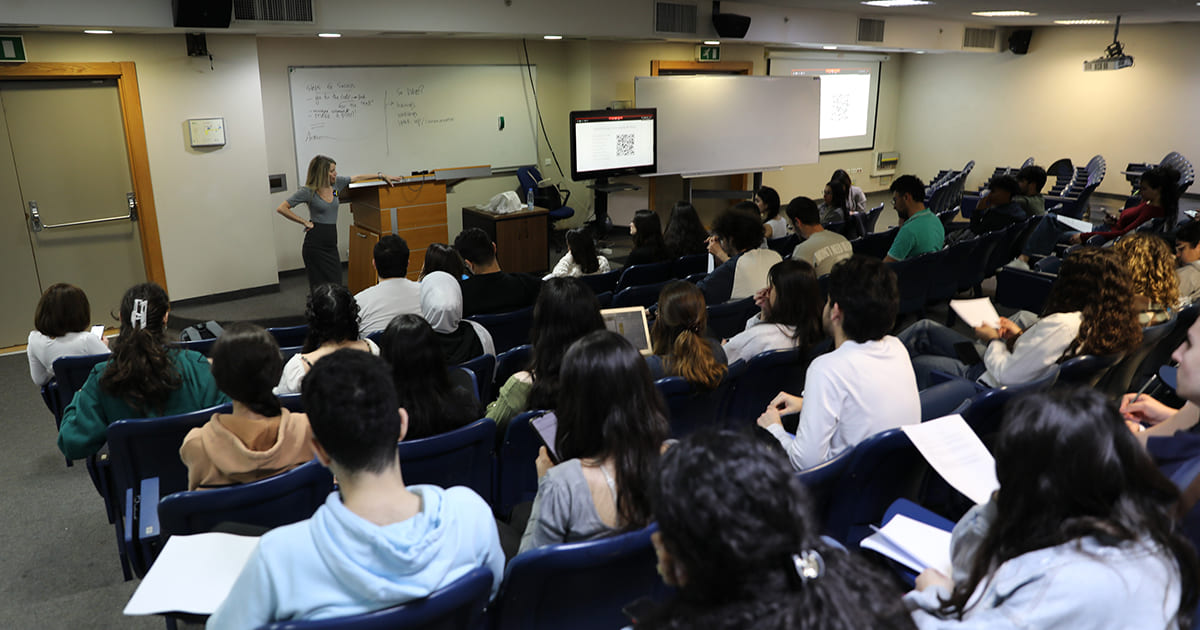LAU Guides Its Students Through the Code of Conduct
The School of Arts and Sciences helps students realize their rights, responsibilities and role in cultivating a unified campus community.
Institutions of higher education are underpinned by values of academic integrity and collective responsibility, which guide both individual behavior and community life. At LAU, these principles are outlined in the Student Code of Conduct.
To reframe these guidelines as protection of students’ rights rather than a punitive set of rules, the School Student Affairs Council (SSAC) at the School of Arts and Sciences (SoAS) held a workshop for students on March 17 and 19, clarifying the significance of the university’s policies.
Titled Understanding the Student Code of Conduct: An Interactive Workshop on Student Rights and Responsibilities, the event was the first of a series of student-centered initiatives aimed at empowering students, fostering dialogue, and strengthening the university’s community. A number of students from across schools and majors attended the sessions held on both the Beirut and Byblos campuses.
“Our mandate is to partner with students to make sure that they are having the best and most valuable university experience, both inside and outside academics,” said Lecturer and Coordinator of the Office of Professionalism and Ethics Emily Gafney, who facilitated the workshop.
One of the committee’s main goals, she added, is to ensure that the students are being supported not only in their academic endeavors but also in their overall university career, “including their wellbeing and success.”
Through discussions and interactive activities, the workshop examined key topics such as harassment and discrimination, misuse of university property and freedom of expression, particularly how these principles operate within the academic environment.
By analyzing case studies and debating ethical dilemmas, Dr. Gafney clarified that all rights listed in the conduct are not necessarily absolute, as they exist within boundaries designed to ensure that they do not infringe on those of others. “While students have the right to express their views, for example, this does not extend to harassment or disruption,” she said.
Highlighting these values illustrated how to address violations and motivated students to contribute to a respectful and inclusive campus culture.
Elsa Maria Nahas, a third-year student majoring in business, said that “the workshop was incredibly helpful as I now have a much clearer understanding of my rights at the university.” What it gave her, she added, was a broader sense of the reasoning behind the decisions that affect her at the university.
Sophomore psychology student Lara Ghanem shared this sentiment. She noted that the clear instructions with which the Code of Conduct was explained helped “clarify not only my responsibilities but also the potential consequences of my actions to me and my peers.”
Central to the workshop were scenario-based exercises addressing various controversial situations that might occur in a university setting, where students collaborated to analyze them and accordingly identify applicable sections of the code.
These activities involved examining a WhatsApp group where jokes targeted absent peers, collaborating on assignments explicitly designated as individual work, and engaging in heated debates with controversial speakers, among others.
“In these situations, tensions can rise around institutional responsibilities,” said Dr. Gafney. “It is important we acknowledge that policies must adapt to complex situations and that the code is a living document that evolves through student feedback.”
To help promote a culture where students see themselves as active participants in their academic community, Dr. Gafney aims to hold an event as part of the series on AI and Ethics in collaboration with the LAU Writing Center, in which they discuss the ethical implications of AI in education.



